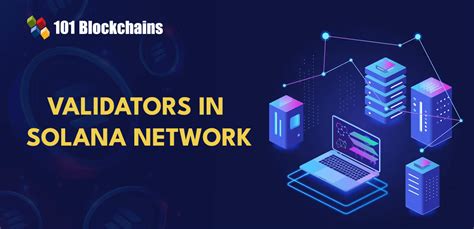The role of validators in blockchain ecosystems
In the rapidly evolving world of blockchain technology, the concept of validators has emerged as a crucial component of the underlying infrastructure. As the second-large cryptocurrency by marketing capitalization after Bitcoin, ethereum is at the forefront of this revolution, and its success relies on the effective functioning of its Network’s validation process.
What are validators?
In simple terms, a validator is an individual or entity that confirms transactions on a blockchain network through a complex cryptographic protocol. When a transaction is created on the blockchain, it must be verified by multiple validators to ensure the integrity and security of the network. These validators use advanced algorithms and computational power to solve mathematical puzzles, which are then used to “Lock” New Blocks in the Chain.
The Role of validators
A validator’s primary function is to act as a custodian for the network’s blockchain data. They verify that all transactions on the network adhere to specific set by the protocol, ensuring that the integrity and security of the network are maintained at all times. Here are some key aspects of a validator’s role:
* Transaction Validation : Valitatures confirm that each transaction is valid and follow the specified rules.
* Block Creation : By Solving Mathematical Puzzles, validators Create New Blocks in the Blockchain, which contains verified transactions from the previous block.
* Network Security : validators ensure that the network remains secret by detecting and preventing any malicious activity.
* Consensus Mechanisms : They help maintain consensus among nodes on the network, ensuring that all parties agreed on the state of the blockchain.
The Challenges of validator Management
As the size and complexity of blockchain networks continue to grow, so does the need for efficient and scable validator management. Some of the Challenges that validators Face Include:
* Energy Consumption : The Energy Required to Power A Node’s Computational Resources can be substantial, contributing to Environmental Concerns.
* Security Risks

: Vulnerabilities in the validation protocol can compromise the security of the network, leading to potential losses for investors and users.
* Scalability Limitations : as the number of nodes on the Network Increases, it becomes more challenging for validators to handle a large volume of transactions.
The Future of Validator Management
As the blockchain ecosystem continues to evolve, new technologies and innovations are emerging to address some of these challenges. Some Potential Solutions Include:
* Proof-of-stake (POS) Consensus : A Newer, Energy-Efficient Consensus Mechanism that reduces the computational requirements for validators.
* Hash rate Optimization : Strategies aimed at increased the performance of individual nodes, while minimizing the total energy consumption.
* Quantum-resistant Cryptography : Advancements in cryptographic techniques designed to be resistant to the potential threats posed by quantum computers.
In conclusion, the role of validators is pivotal to the functioning and security of blockchain ecosystems. As these networks continu to grow and mature, it will be essential to develop and implement innovative solutions that mitigate the challenges associated with validator management. By doing so, we can create a more resilient and sustainable blockchain infrastructure for the future.
